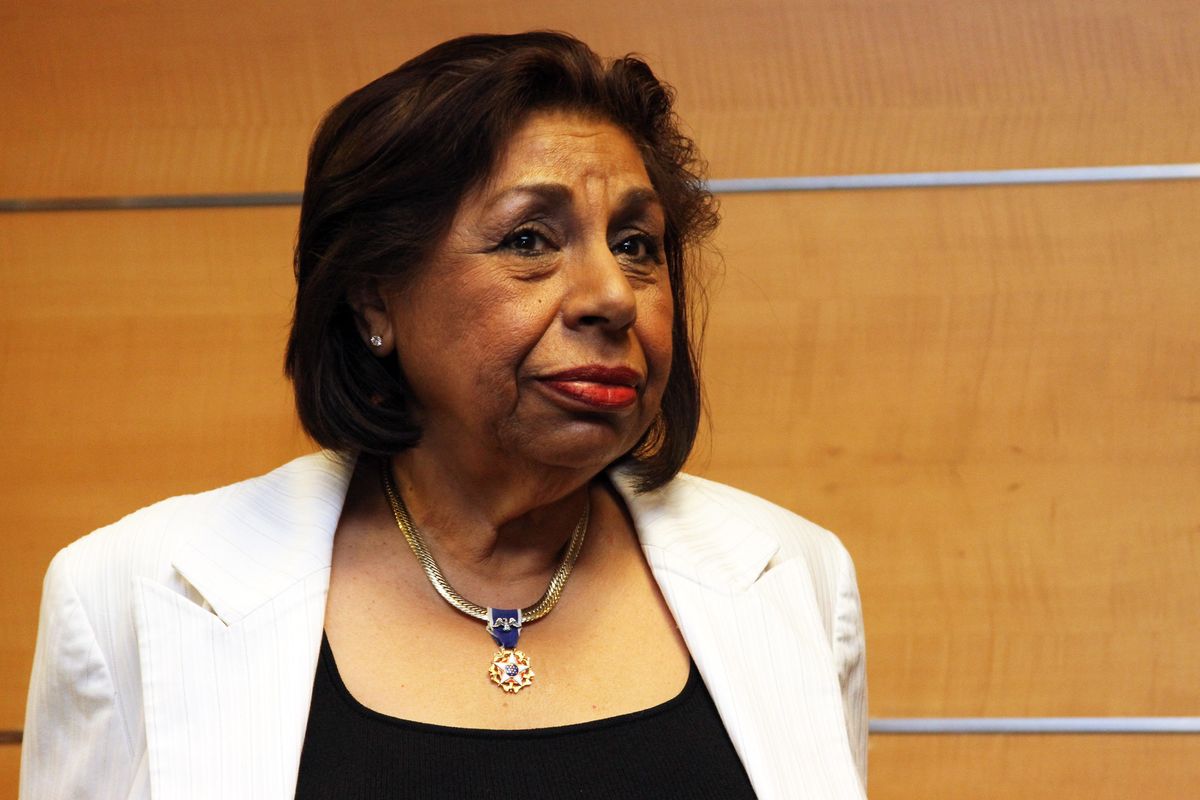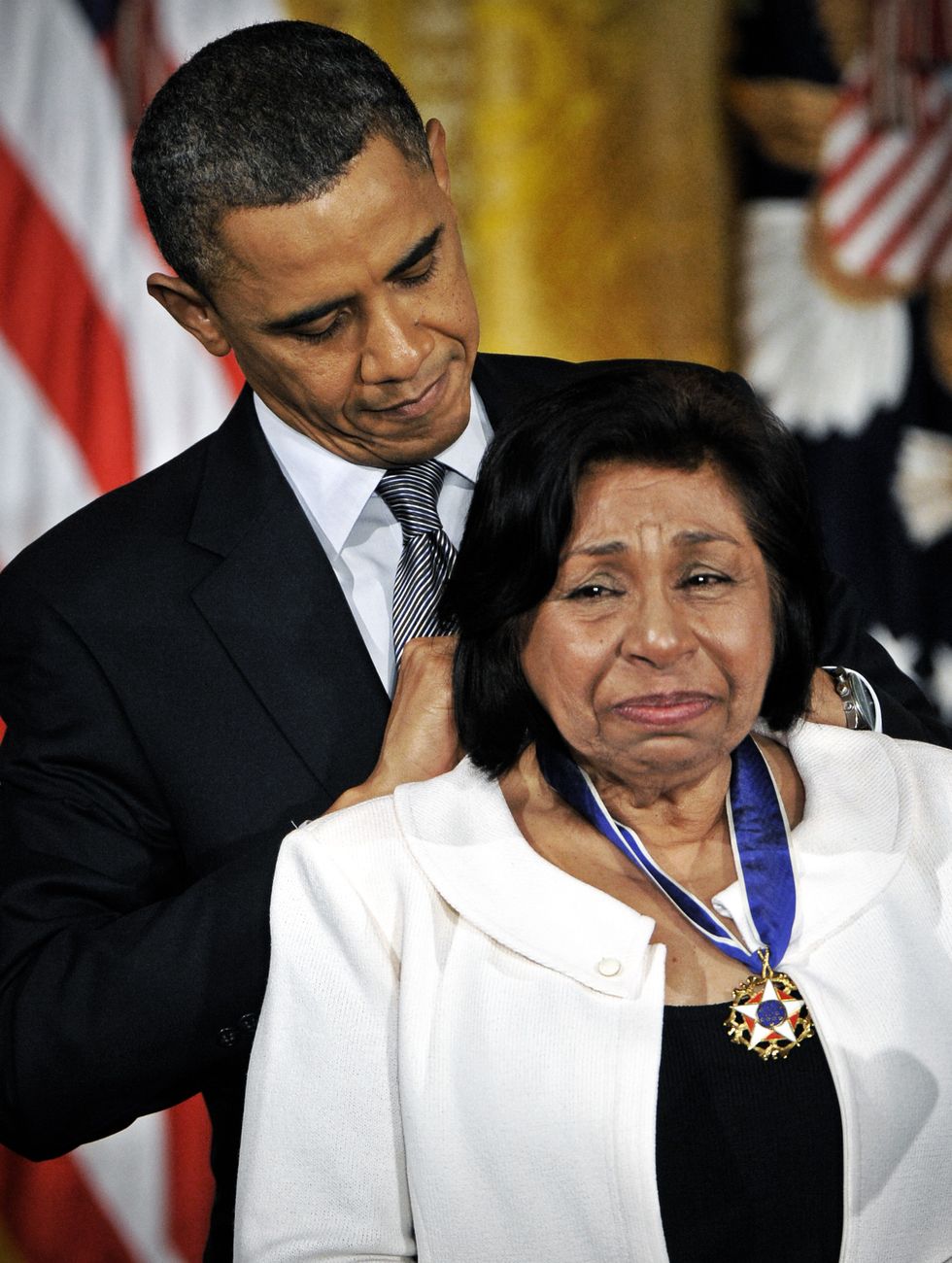You are viewing the article Sylvia Mendez and Her Parents Fought School Segregation Years Before ‘Brown v. Board’ at Tnhelearning.edu.vn you can quickly access the necessary information in the table of contents of the article below.

A decade before the landmark Brown v. Board of Education case ended racial segregation in schools across the country, a Mexican family in California paved the way for equality in schools.
At the center of the 1946 case was Sylvia Mendez, an 8-year-old girl in Westminster, California, who dreamed of going to the “beautiful school” white children attended and not the Mexican school down the road.
Her family eventually won the Mendez v. Westminster case, which outlawed the use of specific schools for Spanish-speaking children in Westminster, eventually ending segregation as a whole across California.
“This is the history of the United States, the history of California,” Mendez told the Los Angeles Times in 2016. “Mendez isn’t just about Mexicans. It’s about everybody coming together. If you start fighting for justice, then people of all ethnicities will become involved.”
The first instance of discrimination came when the school turned the Mendez children away
The Mendez family’s fight started in 1944 after moving to the area to lease a farm from a Japanese American family who had been forced into an internment camp. When Mendez and her siblings attempted to register for the 17th Street School, which white children attended, they were turned away while their cousins with fairer skin and a French last name were allowed to register.
Mendez’s aunt refused to stand for the discrimination and left with all the kids. When Mendez’s dad, Gonzalo, attempted to remedy the situation and was again denied, even though he had attended the school in his youth, the farmworker decided to fight back.
It wasn’t just the racial discrimination that bothered the Mendez family. The Mexican school didn’t have the same amenities as the other and were used to Americanize the children. The school consisted of two wooden shacks filled with second-hand books, faulty desks and little stimulation. Mendez recalled to the Los Angeles Times how the students weren’t taught to read and write, but instead, the boys were prepped for labor work and the girls instructed on housekeeping duties like knitting and sewing.
The Mendez family then drew other people to the cause
While Mendez’s mother, Felicitas, took over the running of the farm, Gonzalo hired a lawyer who had previously won a desegregation case and started making the rounds in California looking for other parents willing to stand up for their children.
Gonzalo and David Marcus, a civil rights attorney, eventually found four other families from different districts to build a stronger case.
The five men filed a lawsuit in federal court against the four Orange County school districts they came from, which would go on to be known as the Mendez v. Westminster case. It represented about 5,000 Mexican American children in the districts. While the men argued their children were not given the same learning opportunities as the white children in the districts, Mendez remembers not understanding what was happening.
“We went to court every day, I listened to what they were saying, but really I was dreaming about going back to that beautiful school,” she recalled to the Los Angeles Times.
Their arguments won, with the judges and civil rights organization siding with the families
On February 18, 1946, less than a year after they filed, Judge Paul J. McCormick ruled in strong favor of the Mendez family and their co-plaintiffs.
“The evidence clearly shows that Spanish-speaking children are retarded in learning English by lack of exposure to its use because of segregation, and that commingling of the entire student body instills and develops a common cultural attitude among the school children which is imperative for the perpetuation of American institutions and ideals,” McCormick wrote in his ruling.
Though the school districts appealed, the ruling was held a year later and Mendez was allowed to enroll in 17th Street School, where she endured racial bullying from classmates.
“I was crying and crying, and told my mother, ‘I don’t want to go to the white school!’ And she said, ‘Sylvia, you were in court every day. Don’t you know what we were fighting? We weren’t fighting so you could go to that beautiful white school. We were fighting because you’re equal to that white boy,’“ Mendez later recalled.
While geographically small, the case had lasting ramifications
Mendez v. Westminster would go on to leave a lasting legacy on the important people around it. Future Supreme Court Justice Thurgood Marshall, then an NAACP attorney, wrote an amicus brief on the case supporting the Mendez cause. He would go on to use some of the same arguments in Brown v. Board of Education less than a decade later while serving as the lead attorney on the case.
It also impacted then-California Governor Earl Warren, who entirely outlawed school segregation in the state after the Mendez ruling was upheld by federal court. In a fateful twist of events, Warren had become Chief Justice of the U. S. Supreme Court by the time Marshall argued Brown v. Board of Education in front of him in 1954. Warren wrote the unanimous decision officially declaring school segregation laws unconstitutional across all states.
Mendez continues to honor her father and mother’s work to this day
Though the ruling directly influenced the decision in the more-famous Brown case, the Mendez family was seldom talked about in the same reverence. Gonzalo died in 1964 at age 51, unaware of how his fight would go on to change the country. When Felicitas later fell ill and died in 1998, she asked her daughter to continue bringing attention to what their family accomplished.
Mendez, now in her 80s, has dedicated her life to her family’s memory since. After working as a nurse for 30 years, Mendez retired and now gives talks across the country to highlight how her family’s fight paved the way for desegregation.
The year her mother died, the Santa Ana school district named a school the “Gonzalo and Felicitas Mendez Fundamental Intermediate School” to honor her and her husband. On the 60th anniversary of the case, the family was commemorated with a special stamp from the U.S. Postal Service.
In February 2011, Mendez was awarded the Presidential Medal of Freedom under President Barack Obama, cementing her family’s legacy.
“When I got it I couldn’t stop crying, because I was thinking finally my mother and father are getting the thanks they deserve,” Mendez told the Los Angeles Times. “This is theirs, not mine. They stood up against the establishment.”
Thank you for reading this post Sylvia Mendez and Her Parents Fought School Segregation Years Before ‘Brown v. Board’ at Tnhelearning.edu.vn You can comment, see more related articles below and hope to help you with interesting information.
Related Search:




